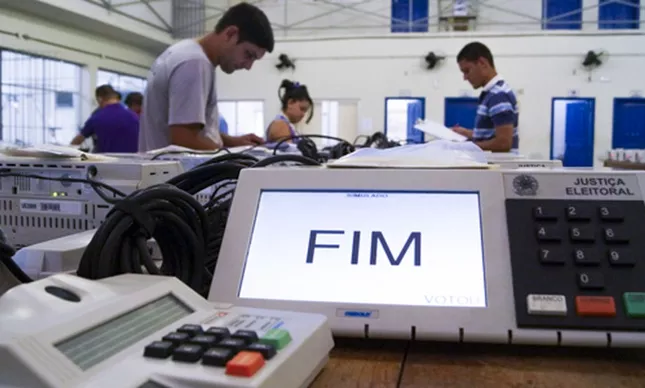

Senado aprova voto impresso no novo Código Eleitoral
In a close vote, the Senate's Constitution and Justice Committee (CCJ) approved , this Wednesday (20), a highlight that includes the provision of auditable printed votes in Brazilian elections. The measure, which was already considered unconstitutional by the Supreme Federal Court (STF) in 2020, was approved by 14 votes to 12 and is part of Complementary Bill (PLP) 112/2021, which creates the country's new Electoral Code.
The PLP's basic text, with nearly 900 articles, had already been approved previously. The amendment approved this Wednesday inserts the ballot printing mechanism as an auditing layer into the current electronic system.
How would the printed vote approved by the CCJ work?
According to the approved highlight text, the process would work as follows:
-
The voter votes using the electronic ballot box as he does today.
-
After the digital vote is confirmed, the ballot box will print a paper record of each vote.
-
This receipt will be automatically deposited in a sealed location, without manual contact by the voter , preserving confidentiality.
-
The process is only completed after the voter confirms that the vote displayed on the screen matches what was printed.
The stated objective of the mechanism is to create a physical record that allows for occasional audits and checks, while maintaining the electronic ballot box as the primary means of voting and counting.
Long way to becoming law
Approval by the CCJ is just one step. The bill still needs to be voted on in the Senate plenary . Because it has undergone changes compared to the original text from the Chamber of Deputies, if approved by the senators, the bill will need to be returned for further analysis by the deputies .
For the rule to be valid for the 2026 elections, the text must be sanctioned up to one year before the election, that is, by October 2025.
Heated Debate: "Pacifying the Country" vs. "Secure System"
The amendment was proposed and defended by the opposition, which justified the measure as a way to bring more confidence to the electoral system, especially for "common people." The proposal comes amid unfounded questions about the security of electronic voting machines.
Senator Carlos Portinho (PL-RJ) defended the measure: "We have to bring peace to the country. For God's sake! The point isn't to be right, it's to be happy. So, to bring peace to the country and to be happy, we need the printed vote."
The bill's rapporteur, Senator Marcelo Castro (MDB-PI) , opposes the change. He argues that, in nearly 30 years of use, electronic voting has never had a proven case of fraud. "It's an absolutely secure system. In the 2024 mayoral and city council elections, there were over 400,000 candidates, and there hasn't been a single lawsuit in Brazil claiming they lost because of fraud," he stated.
STF and Chamber have already positioned themselves against
The shadow of unconstitutionality looms over the proposal. In 2020 , the Supreme Federal Court ruled unconstitutional a 2015 mini-electoral reform that provided for printed ballots. At the time, the Court found that the measure posed risks to the secrecy of the vote and could facilitate fraud.
Furthermore, in 2021 , the Chamber of Deputies rejected a Proposed Amendment to the Constitution (PEC) that attempted to make printed voting mandatory, showing that the proposal had already faced resistance in the Legislature.
The fate of the measure now depends on the votes in the Senate plenary, reigniting a debate that mixes politics, technological security and electoral law.
Qual a sua reação?















Comentários
Deixe uma resposta